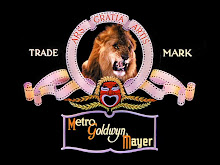Saturday, January 26, 2013
Reel Old Films
If you're looking for a new resource for old, hard-to-find films, you may want to check out Reel Old Films, which is now listing hundreds of films of all genres: https://reeloldfilms.com/
Monday, January 21, 2013
The Woman Racket (1930)
Blanche Sweet had an extraordinary career in Hollywood. Largely known as one of D.W. Griffith's acting troupe, Sweet first appeared in a 1909 Edison short and last appeared in an episode of Dobie Gillis.
Here she appears in one of the three films she made in 1930 before she left the film industry for decades. Based on her acting in this film, she could easily have had a career had she stayed. She has an assured voice and manner.
In The Woman Racket she's a singer in a prohibition-era nightclub. During a raid, a kindly policeman (Tom Moore) allows her to escape, begins dating her and eventually marries her. She's soon bored with domestic chores, though and the excitement of the nightclub life begins calling to her... Sweet is sweet in this role and her singing is nice, too.
Tom Moore (whose career began at roughly the same time as Sweet's, 1908) gets a drubbing on IMDB for his acting, but I thought he was fine, likable and believable in the role of a patient, loving and abandoned husband. Bringing more life to the melodrama are Robert Agnew and Sally Starr, two innocent singers in the nightclub caught up in the villain's machinations. The uncredited songs used in the film, while not great, have that wonderful early '30s vibrancy and joy, this being the sweet spot of MGM musical accompaniment. It was only the villain, John Miljan, that I found less than believable. Miljan never played roles of great depth (that I've seen), but this dastardly role seemed particularly one-note, stiff and stereotypical.
Give The Woman Racket a try if you're in the mood for an average, pleasant, tuneful 1930 melodrama.
Tuesday, January 8, 2013
New to DVD: Salute to the Marines (1943) and Music for Millions (1944)
Salute to the Marines, starring Wallace Beery in Technicolor and Margaret O'Brien and Jimmy Durante in Music for Millions are being released to DVD-R for the first, by Warner Archives.
Check the Warner Archives site for details:
http://www.wbshop.com/category/wbshop_brands/warner+archive.do
Check the Warner Archives site for details:
http://www.wbshop.com/category/wbshop_brands/warner+archive.do
Wednesday, January 2, 2013
Laughing Boy (1934)
Sadly, though, Laughing Boy is a mess. Ramon Novarro is seriously miscast in the lead role. With his Prince Valiant-like haircut and too much makeup, he looks ridiculous. Also ridiculous are the anachronistic songs he's made to sing (or lip-synch), which made me wonder if Jeanette MacDonald was going to glide onstage and join in. Fellow Mexican actor Lupe Vélez fares somewhat better as Laughing Boy's prostituting wife, but exotic doesn't equal authentic.
The movie, directed by W.S. Van Dyke, was partly shot on location with real Native Americans (some of the location footage may be left over from Universal's earlier attempt to film the novel). When mixed with particularly bad rear-projection scenes, cheap looking sets and MGM actors dressed like Navajo, the result is worse than jarring. It's absurd and takes you right out of the picture.
Laughing Boy's fate worsened when the Hays Office demanded cuts which almost make the film nonsensible. Due to fear of controversy, MGM didn't promote the film and it lost money - continuing a pattern for Novarro's films which culminated in MGM not renewing his contract in 1935. Laughing Boy was Novarro's least favorite film of the ones he appeared in. Andre Soares, in his book on Novarro, Beyond Paradise, reports that novelist Oliver La Farge splashed a drink in the face of the screenwriter of Laughing Boy after the release of the film; the ultimate commentary on the film.
Laughing Boy is not available on DVD, but has been broadcast on Turner Classic Movies.
Subscribe to:
Posts (Atom)









